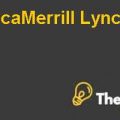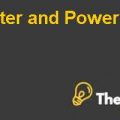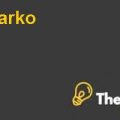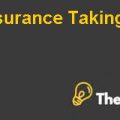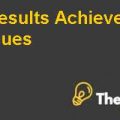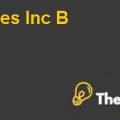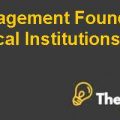
Question No. 4: Using Hudson Bancorp’s estimates of the costs of debt and equity in case Exhibit 8, which rating category has the lowest overall cost of funds? Do you agree with Hudson Bancorp’s view that equity investors are indifferent to the increases in financial risk across the investment-grade debt categories?
Answer:
The normal concept behind the ratings of debt is that the higher the rating of debt lowers the cost, but the reason of giving ratings is that it shows only the risk of default and loss occurred from the default by the company and does not guarantee the lowest cost of capital. In order to evaluate the lowest cost of capital, one must analyze the WACC of the company and for this the company should select the category, providing low WACC but the category must be at-least BBB, the lower the WACC higher the enterprise value.
WACC can be defined as the lowest rate of return that a company must earn in order to stay in the break-even position. If the return of the company is below WACC, then the company will be in deficit. In that way, the organization wants higher return than its WACC. WACC do considers all the sources of funding.
But on the other hand, only WACC alone cannot give the optimal value for the shareholders, it only offers the minimum cost. Generally, the relationship between the market value and WACC is inversely proportional, as the market value of the firm increases, the WACC declines up to the certain level and then starts to rise. Also refer to appendix.
Question No. 5: Is Deluxe’s current debt level appropriate? Why or why not?
Answer:
It can be judged that the current debt level of Deluxe Corporation was not appropriate. Currently the company has debts of around $161.50 million. As shown in the appendix,the calculations of maximum debts shows that the company will be needing an external sources of funds which will be increasing over the period of time. The target should be to have a debt with minimal cost to lower the cost of capital. Considering the market value of equity, minimum WACC is obtained at the BBB category of the debt. Also refer to appendix.
Question No. 6: What should Singh recommend regarding:
1. The target bond rating
2. The level of flexibility or reserves
3. The mix of debt and equity
Any other issues you believe should be brought to the attention of the CEO and the board.
Answer:
After the careful analysis and computations, it has been suggested that the company should need to bring its position in obtaining AAA rated bonds, but in that category, the company will have higher unused debt capacity because of the high ratings. In that sense, the company will itself be in an acquisition target by other growing companies.
To counter this position, the company is planning to use the mixture of debt and equity, have decided to go for the aggressive share buyback plan. As per the solution, the company is better off taking debts, but of course, up to a certain level. Cost of debt arein between 5.47% to 12%, and without any tax shield. On the other hand, the cost of equity is rather more expensive, it ranges from 10.25% to 14.25%. After tax cost of debt arein between 3.39% to 7.44%.
CONCLUSION:
Through all this analysis, it seems that Deluxe is able to reach its objectives in particular, financial flexibility, bond rating and value creation. Therefore, we recommend that, the company to recapitalize its equity by increasing, capital through the release of new shares, or try to increase the face value of the shares. So that, Deluxe Corporation can improve its capital structure and keep away from the risk of the falling in its current ratings..............................
This is just a sample partial case solution. Please place the order on the website to order your own originally done case solution.



